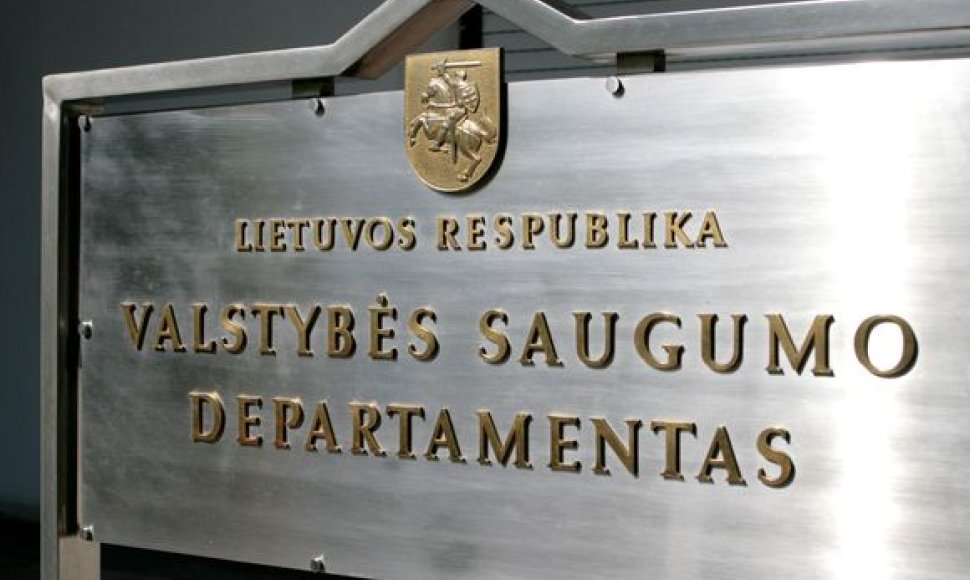"A special threat to Lithuania's energy security comes from the country's dependence on the single natural gas supplier – Gazprom of the Russian Federation – and its gas prices and supply conditions. The natural gas sector is the most vulnerable sector of the Lithuanian energy, as Lithuania remains dependent on Gazprom in terms of technology and economy," reads the document published by the State Security Department.
According to the report, problems related with gas pricing and accumulation of reserves remains important, regardless of the gas sector reforms, launched in Lithuania last year, and related projects.
The State Security Department noted that Russia pays "special attention to strategic energy projects underway in Lithuania."
"Among the issues of the biggest interest are implementation of the provisions of the EU's Third Energy Package, construction of the liquefied natural gas terminal and the future of the Visaginas Nuclear Power Plant projects. The projects are said to constitute a threat to the countries' 'energy security', although are more likely to jeopardize their interests in the Baltic region," reads the report.
“Feasibility and project initiation mechanism” of the construction of nuclear utilities in the Russian region of Kaliningrad and Belarus and planned gas infrastructure projects in Kaliningrad is questionable, says the department, adding that the projects are being developed to influence energy projects implemented in Lithuania.
"By manipulating prices of energy resources and negotiating packages, Russia aims to make Lithuania and other counties energy-dependent on its energy supplies for as long as possible. Russia is likely to continue its efforts to bar the emergence of alternative energy suppliers," reads the report.
Cyber security
Cyber security is also a topic discussed by the State Security Department, saying that cyber attacks "are a fast-growing threat to Lithuania's national security."
"The State Security Department in cooperation with the Second Investigation Department under the Ministry of National Defense has identified a computer virus developed abroad and intended for spying on computers of Lithuanian state institutions, businesses and private individuals. It spreads via external data media (USB, compact discs, etc., therefore, can target computers without Internet access) and e-mail," reads the report.
"The virus sends data and passwords from the infected computer to the manager of the spy software, enabling him to monitor and manage the infected computer from a distance," said the department.
Aggressive Russian intelligence
Russian intelligence and security services are the most active and aggressive actors targeting Lithuania, from within the country and abroad, the State Security Department says in its report. Some operations of Belarusian services are also targeted against Lithuanian interests.
According to the report, Russian services exercise technical means and human contacts to collect information, get connections in Lithuanian institutions and, in some cases, attempt to influence decisions made by Lithuanian state institutions and companies.
"The services perform operations to receive classified and other sensitive information about Lithuania's internal and foreign policies, economy, strategic energy projects, military forces, intelligence and law-enforcement services and influence political, economic and social processes," reads the report.
In addition to traditional methods, the instruments against Lithuania include electronic intelligence, cyber spying and unconventional cover, the State Security Department said, adding that Russian intelligence and security services have technical means for controlling telephone conversations of individuals they are interested in.
Furthermore, Russian intelligence and security services contribute to dissemination of information in favor of Russia, formation, coordination and support of groups of influence.
According to the report, Russian services in 2012 continued their efforts to make contacts with representatives of state institutions, political parties, media companies, research centers, high-tech companies and ethnic minorities. The contacts are not only used for collecting information but also for coordination and control of organizations and people representing Russian interests.
The department said special focus was placed on certain political parties formed on ethnic grounds, with efforts to maintain close relations with employees of embassies of some countries that are not members of the EU and NATO.
According to the report, Russian intelligence and security services aimed to exercise social and public tensions inside the country, escalate and deepen clashes between various ethnic groups, fuel their discontent with the Lithuanian administration and state.
Also, some of the operations of intelligence and security services of Belarus and other countries were aimed against Lithuanian interests, the department said. Some countries aim to collect information they plan to later use in political and economic decision-making.












